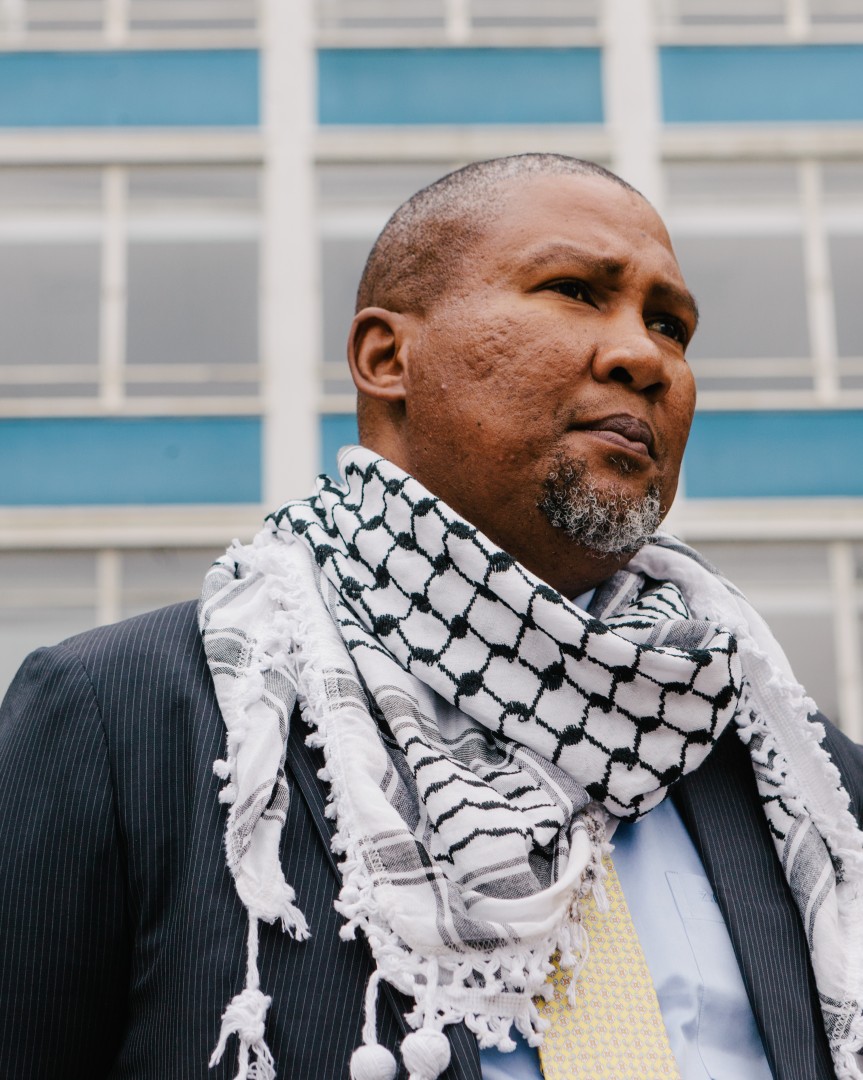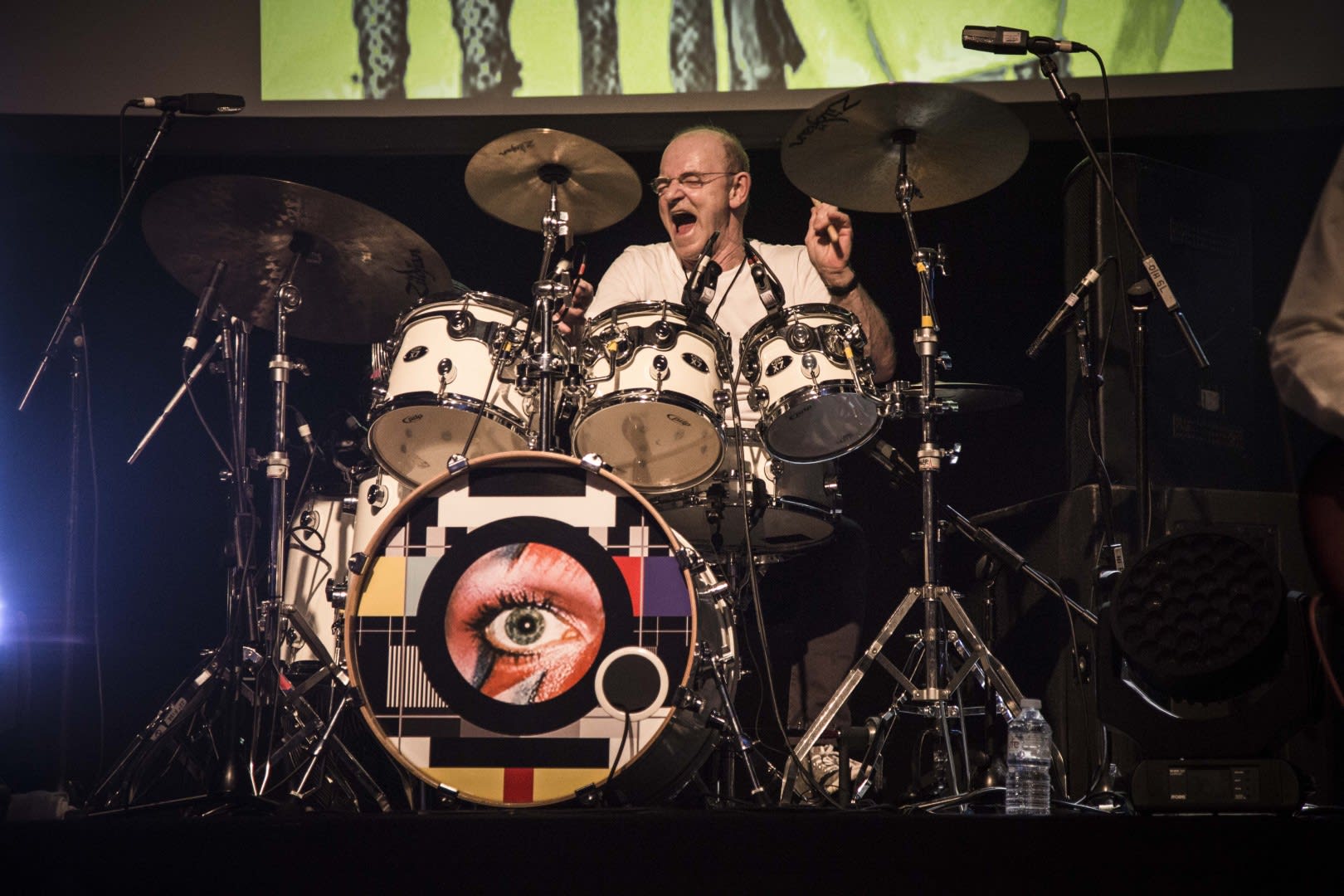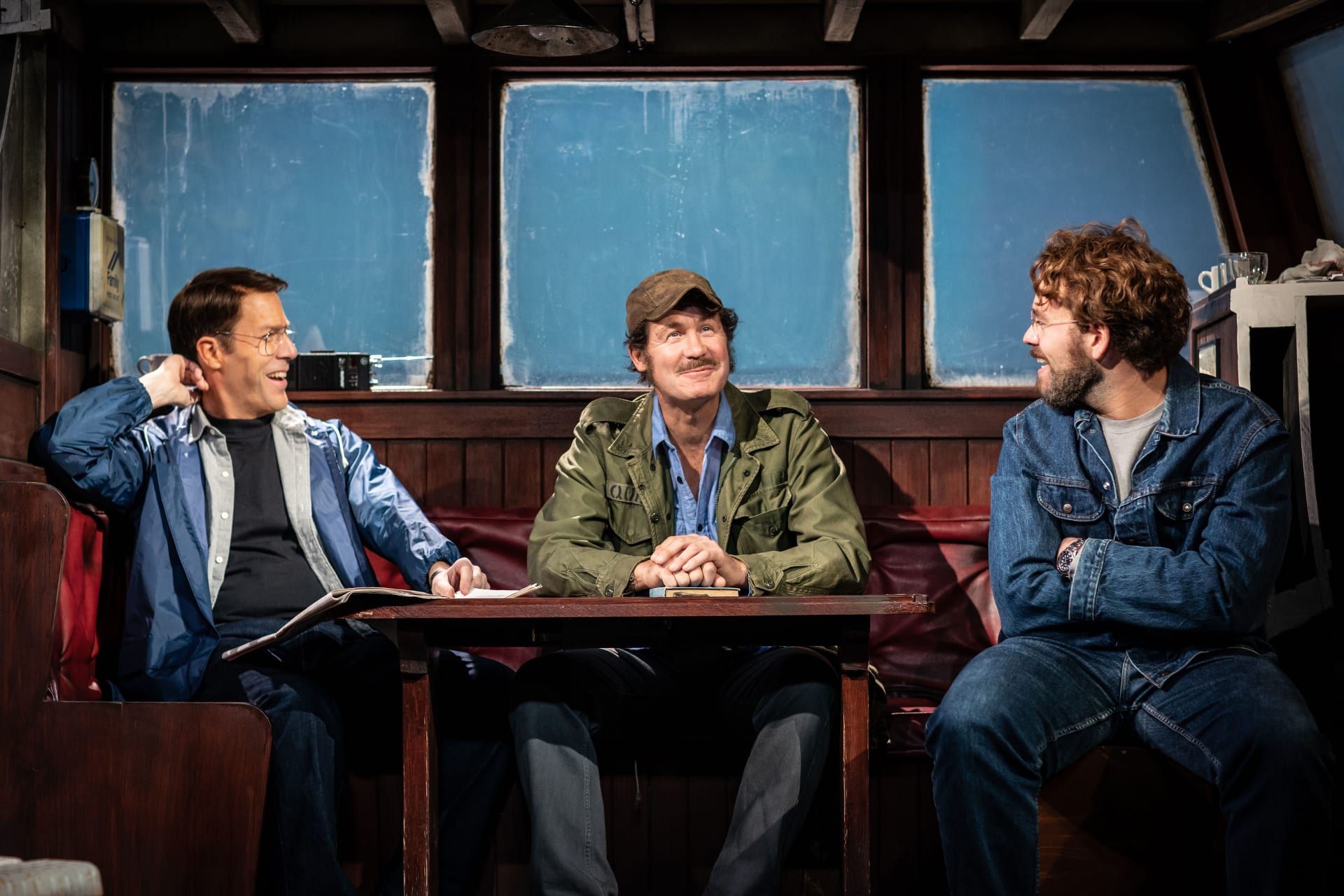In February, Nelson Mandela: The Official Exhibition will open at 26 Leake Street on London’s South Bank. It will contain items on loan from the Royal House of Mandela – some never previously displayed outside of South Africa – including his iconic beige trench coat and the suit he wore at the opening of the South African parliament in 1996. Promoting the opening on an unusually warm autumn Monday was Mandela’s grandson, Nkosi Zwelivelile Mandela.
In 2007, Zwelivelile became Chief of the Mveso Traditional Council. Mveso is a small village in the Eastern Cape of South Africa and the birthplace of Nelson Mandela, who renounced his claim to tribal leadership to pursue his legal studies and the anti-Apartheid struggle. The chieftaincy was resurrected after many years of absence and the ageing Nelson Mandela, who retired as the first president of a free South Africa in 1999, passed it to his grandson.
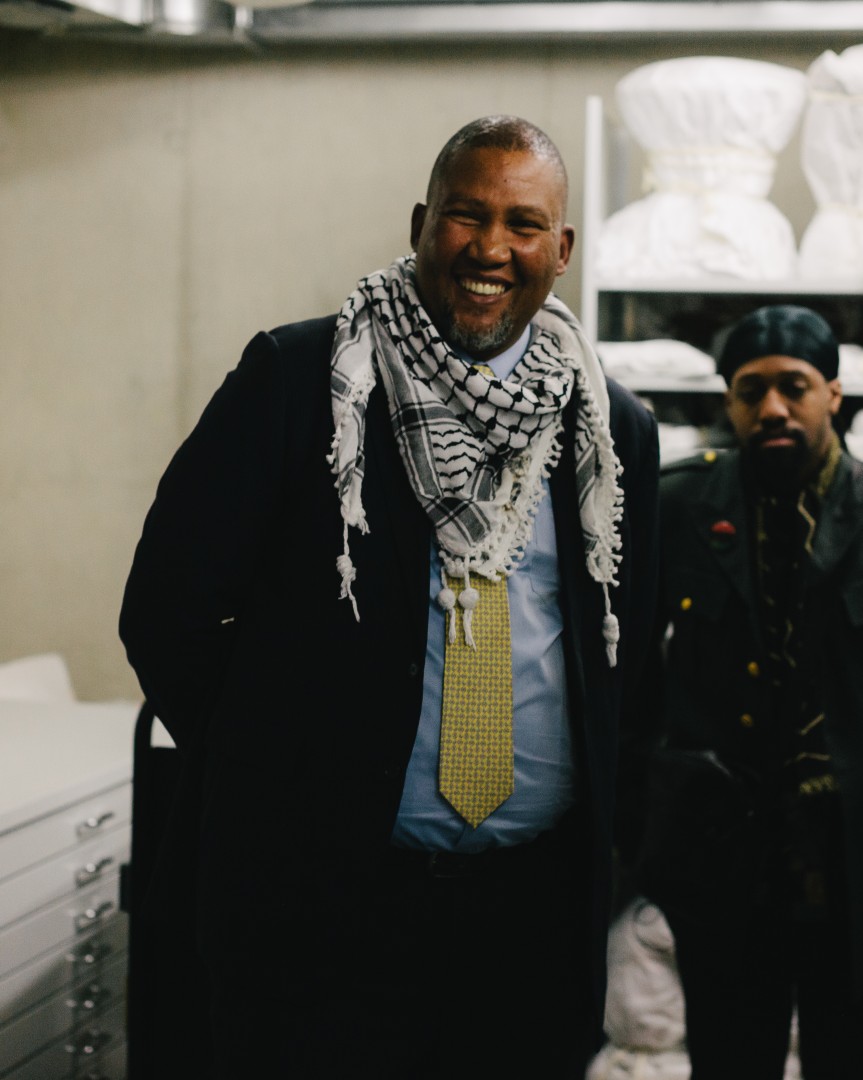
Zwelivelile spoke to us in an upstairs room of the Black Cultural Archives, a stone’s throw from Brixton tube station. He spoke first of the poignancy of the tour of Brixton from which he’d just come. “It was a wonderful walk for me, but, more important than following my grandfather’s footsteps and the places he visited, was the vibrant culture in Brixton. During my mother’s stay here in London, when I came to visit her, we would always hear and meet people out of Brixton. They were a true embodiment of the black culture in London and also a proud anti-Apartheid activist voice. So to be here, to take a step back from living in my grandfather’s footsteps, and to look around and see the faces that were right in the forefront of our anti-Apartheid struggle was humbling.”
“One of the most humbling moments I’ve ever had was to walk in the streets of Hebron,” Zwelivelile continued, invoking the global sinews that lead inexorably back to his grandfather. Unannounced, Zwelivelile walked the market of the Palestinian city incognito, until he met an elderly man who’d noticed someone taking photos.
“Who are you?” asked the man.
“I am Chief Mandela” answered Zwelivelile.
“Mandela?” came the incredulous reply. “Who are you to Nelson Mandela?”
At Zwelivelile’s response the man began to weep, and “from that it just spread in seconds – the entire market from the young to the elderly knew who I was – they were shouting, ‘Mandela! Mandela!’”

Nelson Mandela’s life is without equal in modern politics. His life was thick with the sorts of colossal, nebulous concepts with which most will never have to contend. Justice, equality and freedom are often used so carelessly and hastily that their meaning is diluted, their power exhausted. But Nelson Mandela’s life demands their double-concentrated application. Oppressed people around the world felt a visceral connection with him – not simply because his incarceration was a microcosm of the brutality of Apartheid and of their own struggles, but because he conducted himself with disarming modesty and an ineffable, resolute humility.
The reality of revolution is always more complicated than any binary will allow. Grand political change only ever occurs at the behest of the concerted, concentrated and collaborative efforts of many. Yet our perspective is refracted twice; once due to the simple passage of time and once more by our own predilections and agendas. Our history textbooks focus on the emblems of struggle – Nelson Mandela, Mahatma Gandhi, Martin Luther King – often obfuscating the crucial roles played by others: Albertina Sisulu, Jawaharlal Nehru, Cleveland Robinson. More importantly, more deleteriously, we anonymise the hand that our nations have played in fomenting injustice.
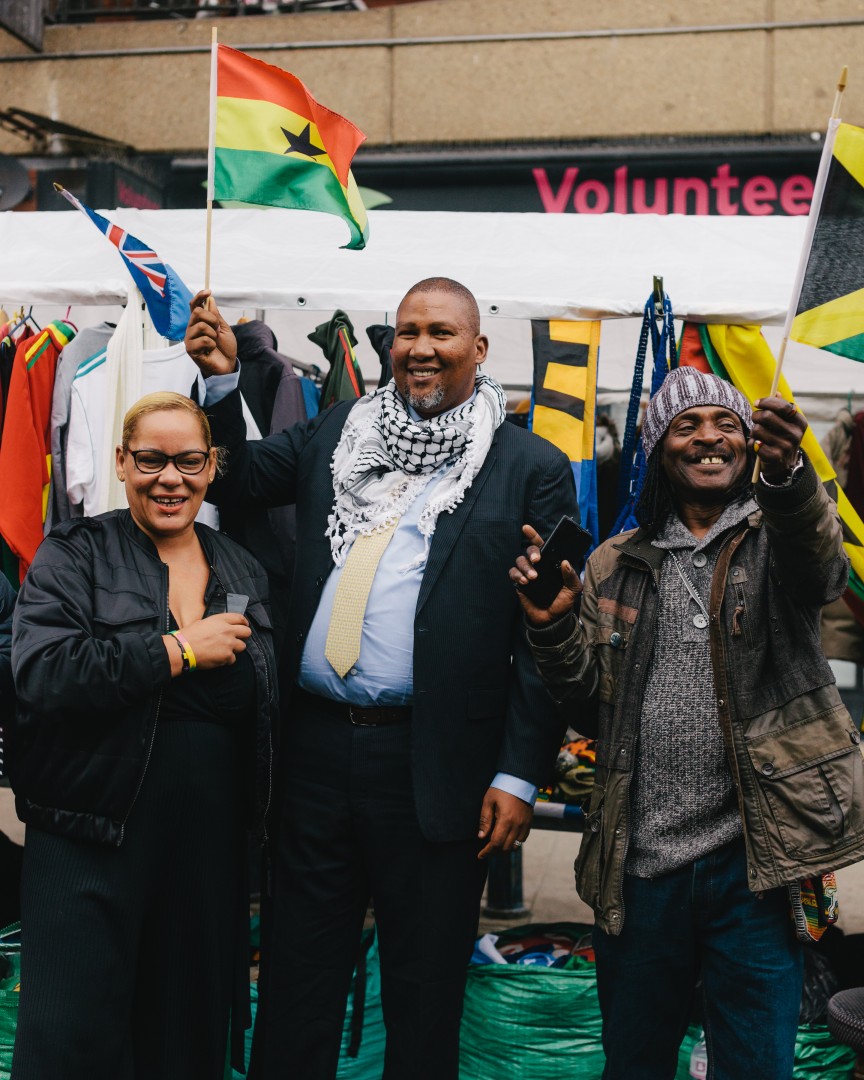
Every colonial nation developed rationalisations that bridged the cognitive dissonance required to enjoy civil rights at home whilst resolutely denying them abroad. Racism, it is easy to forget, was more than a prejudice. It was a theory; an ontological predisposition supported by pseudosciences like phrenology. La mission civilisatrice, the white man’s burden, manifest destiny – all were variations on a theme. South Africa had Hendrik Verwoerd, who, like the bastions of oppression in Europe, lent a scholarly credence to the machinations of subjugation. Zwelivelile touched on this when asked about re-Africanisation, revealing the true extent of the colonial incision – through the domination of politics, economics and education, to the very identity of black Africans.
“In our tradition, a child is given a name at birth by the parents, so Madiba was given the name Rolihlahla by his father.” Rolihlahla, in an instance of incredible historical foreshadowing, literally means ‘to pull a branch off a tree’ which is to say, ‘troublemaker’. “When he went to school for the first time – and it was a missionary school – Miss Mdingane asked him his name, and proudly as a Thembu son he said, ‘Rolihlahla’. The teacher said, ‘Not in this school – you must never use this name – from this day on you are to be called Nelson.’”
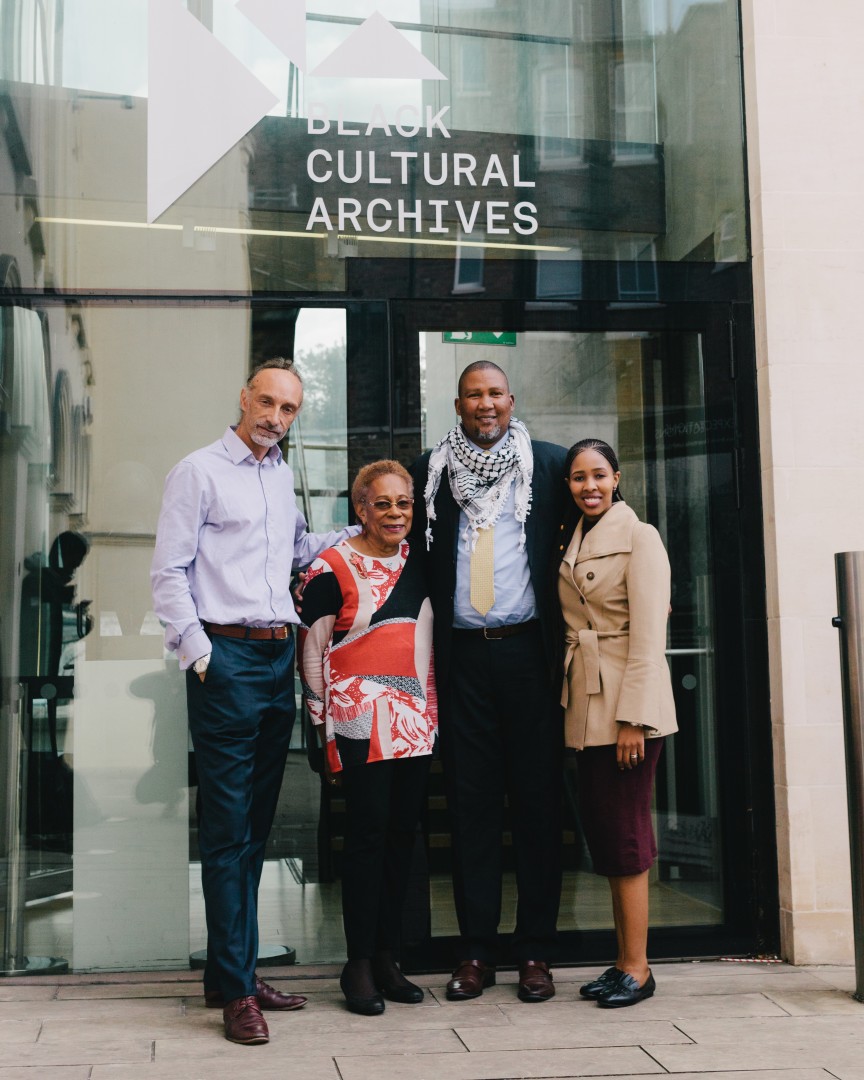
Such an anecdote seems strange. That the man who birthed a nation and whose very name became synonymous with the righteous struggle, was given that name at school in a flight of post-colonial conformity seems incongruous. “A lot of people read The Long Walk to Freedom, and in the first two or three chapters they are lost or disconnected from what Madiba is trying to define in terms of his own traditions and cultural roots,” admitted Zwelivelile . The exhibition will seek to rectify this by uncovering the experiences of the man behind the icon; the life behind the legend.
But more than that, Zwelivelile and the Royal House of Mandela hope that this exhibition will inspire action, as opposed to the repetition of well-meaning platitudes. “One of my sad moments was to witness the United Nations unveiling a statue of my grandfather – I said to myself, if we are only honouring Madiba with statues and don’t uphold his principles and ideals, we’ve totally misplaced who the man was. The UN takes a resolution on Palestine and they don’t uphold it. They take a resolution on the Western Sahara, they fail to implement it.”
No matter your reserves of optimism, the world confronts us now as a frighteningly, zealously riven place. At a time when we face existential crises as a species, we have become more myopic, more exclusionary and more provincial. Zwelivelile’s aims, and those of the exhibition, are noble – perhaps now, more than ever, we need to inspire the next Mandela.
